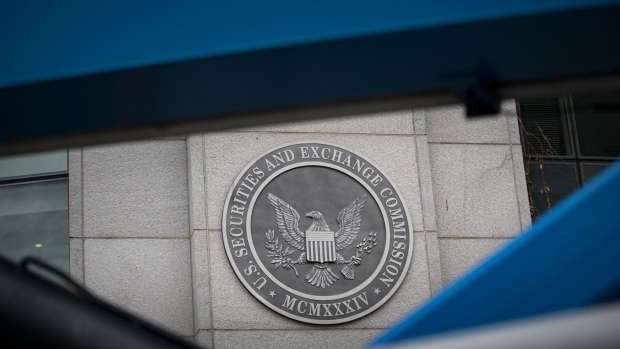May 26, 2022
SEC Planned Crackdown on ‘Misleading’ Funds Goes Far Beyond ESG
, Bloomberg News

(Bloomberg) -- New proposals from the US Securities and Exchange Commission to crack down on money managers using misleading or deceptive fund names threaten to impact investing strategies of all stripes -- not just those focused on ESG issues.
The Wall Street watchdog floated tighter rules Wednesday to ensure a product’s name is squarely focused on its actual strategy, with most observers fixating on what the restrictions mean for socially responsible investing. Yet the proposals could hit thousands more funds trading everything from value and growth stocks to bonds and emerging markets.
Under the new rules, products with names featuring terms as diverse as “International,” “Income” or “Intermediate Term Bond” would be among a swath ultimately required to hold at least 80% of the value of their assets in that type of investment.
It’s potentially a big deal. If the idea sees the light of day, asset managers would be forced to re-label products or adjust their portfolio holdings. While the process has a long way to go and final regulations could be months away, it’s the latest potential disruption from a watchdog flexing its muscles ever more, from cryptocurrencies to complex exchange-traded products.
“This is a very difficult thing to regulate as investment strategies are very subjective,” said Eric Balchunas, ETF analyst with Bloomberg Intelligence. “Should Apple be in an Electric Vehicles ETF? Should Exxon be in an ESG ETF? It depends on the methodology and they are all different.”
As it stands, names with certain terms like “value” or “growth” give a fund more leeway because those are treated as investment objectives rather than investment focuses -- meaning the 80% rule does not apply.
“We are proposing to expand the rule’s 80% investment policy requirement beyond its current scope, to apply to any fund name with terms suggesting that the fund focuses in investments that have, or investments whose issuers have, particular characteristics,” the SEC said in the proposed rule change. “The proposed amendments provide as examples fund names with terms such as ‘growth’ or ‘value,’ or terms indicating that the fund’s investment decisions incorporate one or more ESG factors.”
It is unclear how many funds would be affected. Most focus on the SEC proposal so far has been directed at the significant portion of the 209-word document given over to investments pledging to meet higher environmental, social or governance standards -- part of the regulator’s drive to stamp out so-called greenwashing.
Yet there are 1,211 mutual funds and ETFs with “value” or “growth” in their name alone, according Ben Johnson, Morningstar’s global director of ETF research. That compares with just 307 using “ESG” or “sustainable.”
“On that measure, the effect of these proposed changes would be more meaningful for value and growth funds than ESG ones,” Johnson said. However, clearer definitions around what constitutes value and growth investments should make applying the rules to those funds more straightforward, he said.
Read more: SEC to Crack Down on Misleading ESG Claims With Fund Rules
The proposals follow a 2020 request for public comment on the framework addressing fund names. The SEC says it is concerned that existing rules are “not currently well-suited to address ways in which the fund industry has evolved.”
Assets under management have more than trebled since the SEC’s current rules were put in place two decades ago, and the regulator says competition creates an incentive for money managers to use names designed to attract investors. It also cites academic research indicating that a “significant number” of funds follow a strategy that doesn’t align with the strategy identified in their name.
Meanwhile, use of derivatives in funds has become widespread, and the current rules don’t address how that should be factored into a fund’s 80% requirement. The proposals also seek to fix that.
The investment industry will spend the coming weeks pouring over the details. The SEC will consider feedback it receives and may revise the proposal before holding a second vote to finalize the regulation several months from now.
©2022 Bloomberg L.P.





